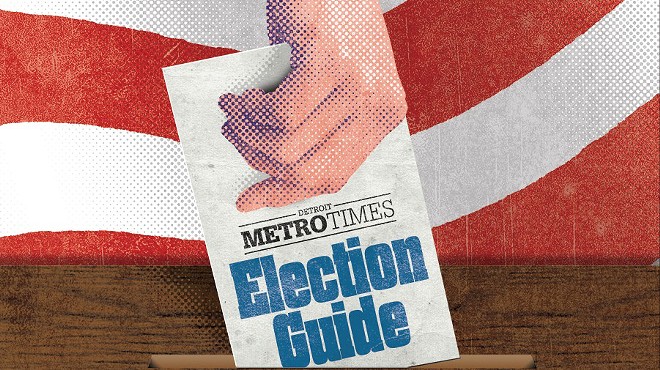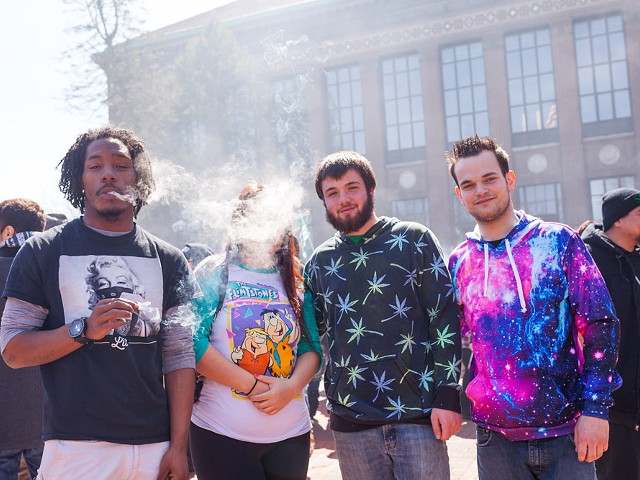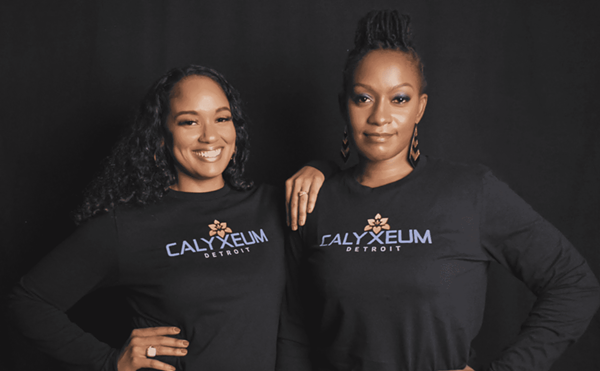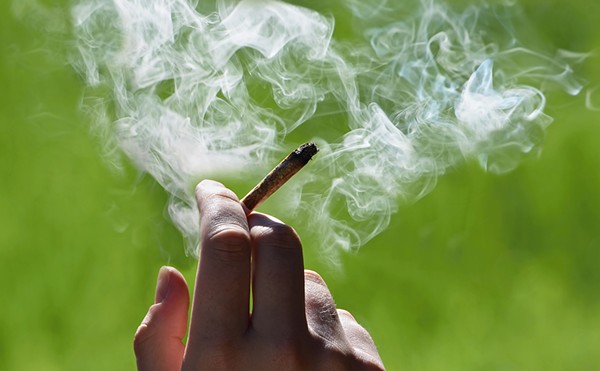On Tuesday, Michigan will vote on whether to join nine others states, Washington, DC, and Canada in legalizing recreational use of cannabis for adults over the age of 21.
Fellow Michiganders, I need you to do me a solid and vote yes on Proposal 1.
My name is Lee DeVito, and I like pot. To my friends and family that didn’t know this about me, yes, I have experimented with marijuana, and yes, unlike Bill Clinton, I admit I did inhale.
No, my life does not resemble Reefer Madness.
If you’re still iffy on this whole pot thing, I’ll try and make this quick. You know how some people like to unwind after a stressful day with a couple of beers or glasses of wine? I don’t. The older I get, I’ve found I get hungover more easily, and alcohol’s depressive effects seem more potent. I’d rather get high: no hangover, no headache.
I suppose I could just get a medical marijuana card. But to get a card in Michigan, you have to have a qualifying condition, and it turns out “because I like it” isn’t a valid one. “Chronic pain” is on the list, and I could probably easily make the case that the life of a writer is starting to take a toll on my back and wrists, but the thing is I don’t want to use marijuana to medicate. I want to be able to smoke because I enjoy occasionally getting high, without having to lurk in the shadows.
It’s not just about escape, although sure, that’s part of it. I would argue the opposite: marijuana makes me feel more connected to the world. I feel more creative when I’m high — every stoner will tell you about that feeling of thoughts triggering other thoughts, and those thoughts triggering other thoughts, to the point where you might even embarrassingly forget what you were originally thinking about. When I’m high, I see connections between things where I wouldn’t otherwise, which probably explains why I’ve met plenty of successful creative people from every walk of life — journalists, artists, musicians, ad agency art directors — who have a similar relationship with weed.
Like drinking, marijuana can be a social drug. I love passing a joint back and forth with my other stoner friends and watching a film or getting lost in conversation. I’ve found that a little pot can help loosen inhibitions and take the edge off an intimidating social gathering. It makes food taste better. It makes sex feel better. It makes jam bands sound jammier. Sometimes on summer evenings, I love to sit on the back porch, doing absolutely nothing except smoking a bowl and listening to the cicadas sing. And there’s nothing more relaxing than falling asleep to a nice edible. Instead of waking up hungover, you wake up with your body tingling. Marijuana makes me love life — especially during a time when it sometimes feels like it’s hard to do that.
But of course, there are plenty of far more important reasons to legalize recreational marijuana than my own fleeting moments of joy.
For one, it’s a tax goldmine. Under Prop 1, marijuana sales would be taxed at 10 percent, with collections split between funding education, roads, and the local governments that permit it. Based on states like Colorado and Washington, it’s estimated Michigan could make between $100 million and $200 million a year from cannabis taxes. I imagine that could fill a few potholes.
One recent study by New Frontier Data found that Colorado, Washington, and Oregon had earned a combined total of $1.3 billion in tax receipts from legalizing and taxing pot. The same study calculated that legalizing marijuana nationwide would create at least $132 billion in tax revenue and more than a million new jobs across the U.S. by 2025, and $51.7 billion in sales tax for the federal government.
Marijuana is sometimes thought of as a “gateway” drug, but there’s plenty of reason to believe that legalizing it could help curb the opioid crisis. A recent study published in the Journal of the American Medical Association’s JAMA Internal Medicine found that states with medical marijuana laws had a 14 percent reduction in opioid prescriptions among Medicaid patients compared with states without such laws. The New York State Department of Health recently began urging doctors prescribing opioids for patients with severe pain to consider medical marijuana as an alternative. Marijuana’s classification as a Schedule 1 drug in the eyes of the federal government has made it difficult for researchers to study it, but studies have found cannabis can be helpful in alleviating pain, nausea, seizures, and fighting cancer.
And then there’s reckoning with the role marijuana has played in the war on drugs, which has disproportionately affected people of color. Far too many people have been sucked into the prison pipeline, their lives derailed for the mere crime of possessing a plant. Prop 1 would reduce marijuana-related violations from crimes to civil infractions. Other states that have legalized marijuana have gone further, allowing offenders to expunge past criminal records for marijuana-related offenses. Oregon, Colorado, and Massachusetts allow people with previous arrests and convictions to seal and expunge their records, while California and Washington have made those changes retroactive and automatic. Democrat gubernatorial nominee Gretchen Whitmer has said she believes in the expungement and exoneration of cannabis-related criminal records. So has Democrat attorney general candidate Dana Nessel. If they are elected and Proposal 1 passes, we should hold them to their word.
I admit I am kind of scared to come out as a stoner. But I can’t say I feel brave. A recent Detroit News poll found 57 percent of respondents support Proposal 1. Despite the Trump administration's opposition to marijuana legalization on the federal level, the general attitude of the country appears to be toward ending marijuana prohibition, which is why I feel safe coming out. I hope others will too.
Though the issue may seem complicated, it really isn’t. For many people, pot is a merely a simple pleasure. So why can’t we at least have that?







